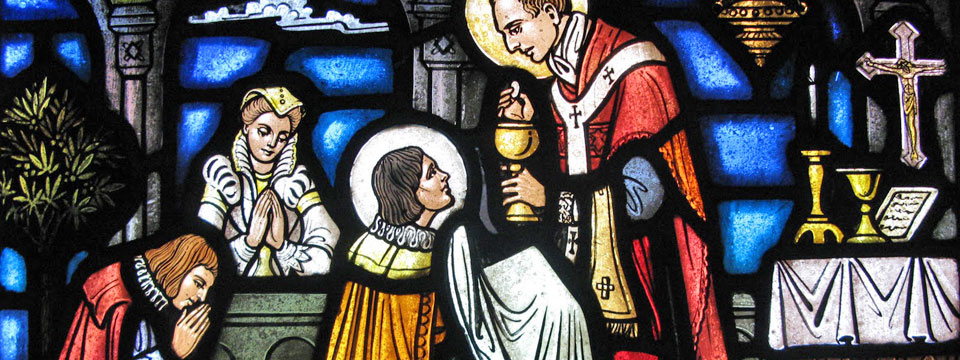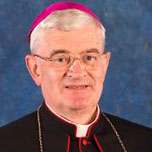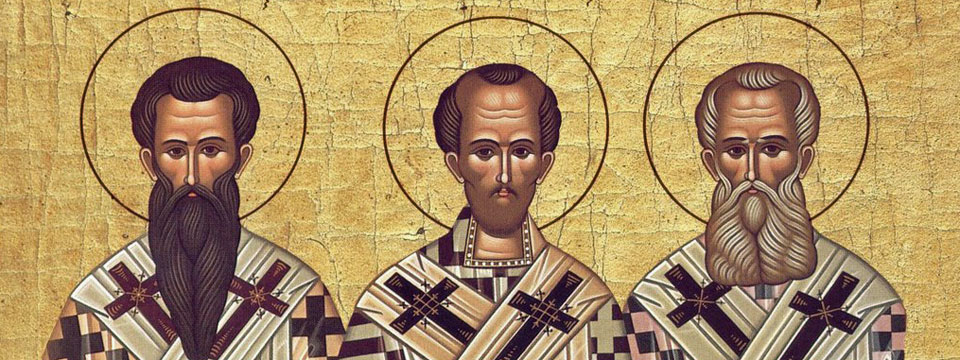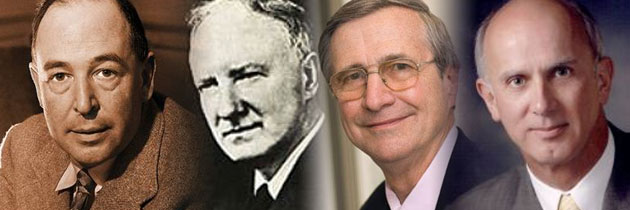In the Church of Sant’Ignazio in Rome, the memorial of Saint Aloysius Gonzaga is celebrated each year as a feast. Throughout this day youths stand guard at his tomb in the right transept. They are dressed in black velvet Sixteenth Century costume, emblazoned with the arms of the Castiglione-Gonzaga family. The noble altar tomb is adorned with lights and vases of white lilies, a symbol the saint shares with Saint Joseph.
The short life of this young Jesuit reminds us that time is relative in God’s mysterious plan for a specific vocation. Unlike us, Saint Aloysius never received priestly ordination, yet, in a short life, by God’s grace he attained a distinctive holiness marked by chastity and a single-minded commitment that is a model for all clergy. In his life he exemplified the maxim of Soren Kierkegaard, “Purity of heart is to will one thing.”
However the human will of itself cannot achieve that much. We are not voluntarists. It is the grace of God that matters. In his own short life Saint Aloysius knew that so well. The fabric of his selfless Christian life depended on grace – his penitential austerities, his single-minded commitment, his powerful purity, a selfless devotion to others that led to his own death while caring for victims of the plague. It was all the work of grace.
Grace. The “g” word has fallen out of fashion, except for a popular old hymn which at least gets across the truth that grace is “amazing”. Yet grace is at the heart of the Gospel of Jesus Christ. It is of the essence of Christianity. I therefore bring to your serious consideration the project of the Australian Catholic Bishops for a Year of Grace, from Pentecost 2012 until Pentecost 2013. The year also coincides with the fiftieth anniversary of the Second Vatican Council.
We all need a deeper catechesis on grace. Do our people still think, pray and live in terms of the divine life of grace? To check on this, I invite you to do some discreet pastoral research, to find out what your people really believe about how we “get to heaven”. I suspect that in these times many of them imagine that good works get us to heaven, that salvation is a matter of effort and still more effort. Pelagianism is rampant today, easily absorbed in the social environment of the free-market society, reinforced by the individualism of our society, whether drawn from post- modernism or perennial human selfishness.
Our mission is to minister God’s grace and to preach the good news of grace. We proclaim that the grace of God is at work in us, grace as the presence and work of the Holy Spirit. Through grace we are justified and sanctified, reborn in the water of Baptism, sealed in Confirmation, nourished in the Eucharist.
Our priesthood depends on grace, on the created grace of the character received for ever in ordination, on the grace of state to be a priest, on the actual graces received in our ministry for others. Our life of grace is drawn above all from the Divine Sacrifice that passes through our unworthy hands. If the Year of Grace is to be Christ-centred as the Bishops envisage, it will be a Eucharistic year.
I suggested that you might find out what your people believe about grace. Some years ago, a survey taken in the United States revealed what Catholic really believe, or do not believe, about the Holy Eucharist. For not a few, it seems as if the Eucharist is “symbolic”, which places the Eucharist safely under our control because some people do not want God to get too close.
I had a taste of this lingering problem at a school Mass in a parish. During Communion I stopped the singing of a sugary children’s hymn which spoke of “eating bread and drinking wine”. One of the teachers was irritated with the bishop because “that is not important”. This is what we are up against. But we need to resist discouragement and press forward patiently and surely with good Eucharistic catechesis. The Year of Grace could make that possible, an ideal context to focus on Our Lord, offered and received in the sacrament of his self-giving love.
Grace through the sacraments also leads to our ministry of reconciliation as confessors. Perhaps the decline in the first rite is partly due to a problem that predates the arrival of the “Third Rite”. Perhaps our people were allowed to fixate on the most unpalatable part of Penance, confessing their sins, which also explains the rise and misuse of General Absolution. Even if contrition was emphasized in times past, the gift of grace in absolution should have been, and should still be, the focus. I would have preferred the post-conciliar word for the renewed sacrament to have been “Absolution” rather than “Reconciliation”, rich as the latter term is in scriptural and patristic wisdom. When we think pastorally, if we focus on grace, the divine forgiveness mediated through absolution should be the heart of the Sacrament of Penance.
Returning to the Holy Eucharist, we can take up a pastoral project, to deepen faith in the Real Presence and to recover the sense of grace in the sacrament, which is more clearly evident in the new translations of the Mass. This would continue the project of the last years of the Petrine ministry of Blessed John Paul, a Eucharistic project – which is the sure basis for the current liturgical project of his successor, Pope Benedict XVI.
We are particularly challenged to correct a casual attitude to Holy Communion, especially among children. Receiving the Lord can easily become mechanical, bereft of prayer, lacking much awareness of the great gift. I would propose a crusade of Eucharistic prayer focused around preparation and thanksgiving for Holy Communion, which would be complemented by the spread of Eucharistic adoration, to which we are all committed.
The saint we celebrate today had a deep devotion to the Blessed Eucharist. In his final illness, Saint Aloysius humbly received Holy Viaticum several times. He was made aware by an interior revelation that he would die on the Octave Day of Corpus Christi, 1591, which was this day, June 21st.
May this patron saint of youth pray for our young people, especially those who are preparing to go to Madrid for World Youth Day. In their pilgrimage to Spain may they discover the amazing grace of God, through Penance and the Eucharist, the grace that justifies and sanctifies, the grace which reconciles and heals, the pledge of what is to come. This is put well in the words of Saint Thomas Aquinas: “Grace is nothing else than a kind of beginning of glory in us.”






